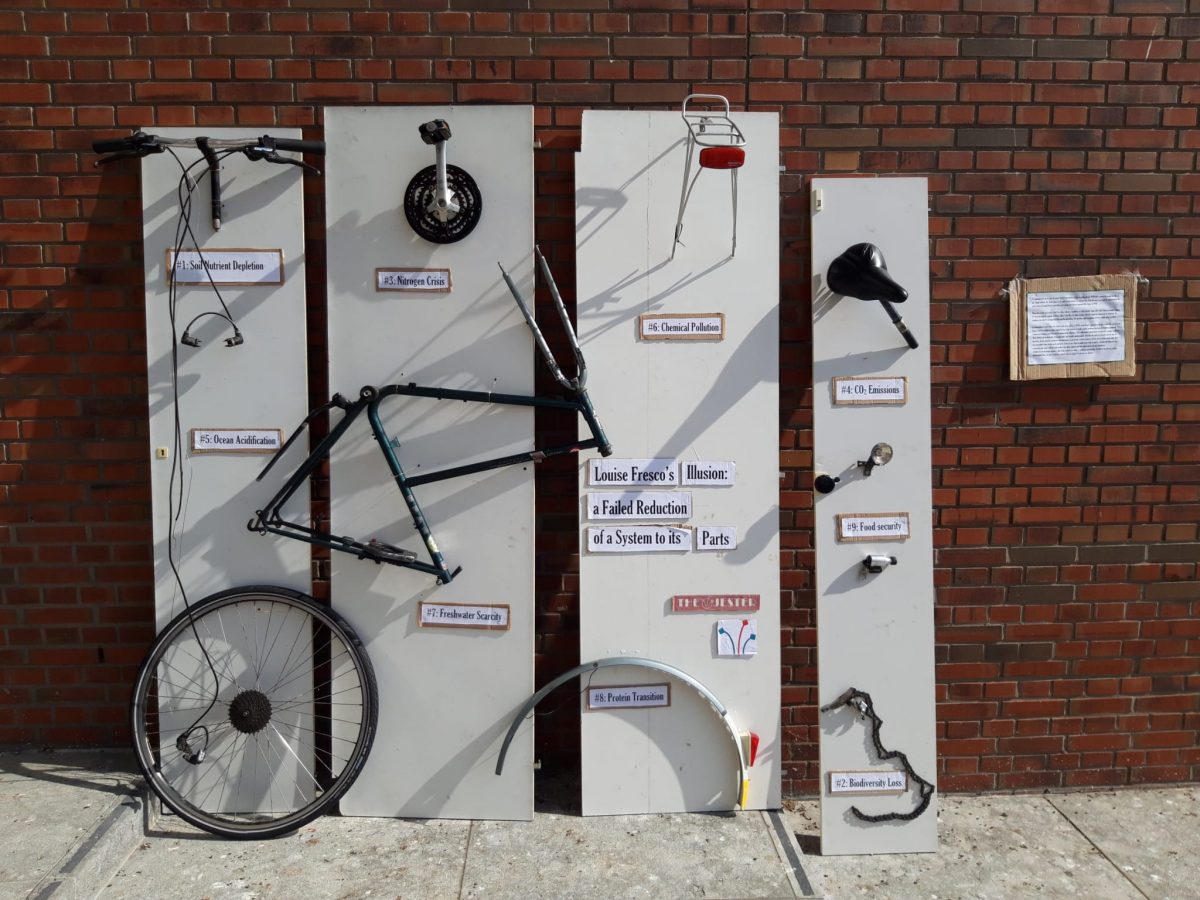The Jester gave it a try to win this much-anticipated bike, and lo and behold, we won it! With this piece, we want to commemorate the past 8 years of Louise Fresco’s presidency by using said bike to represent Her legacy at WUR.
When does a bike stop being a bike? Is a bike without a handlebar or with a broken chain still a bike? Does its essence remain if it does not fulfil the purpose of being ridden? Just like any other system, a bicycle cannot be reduced to its elements. Its existence can only be accomplished through the interaction, the purpose, and recognition of it as a whole, parts included.
By dismantling the Fresco’s bike, the artists invite us to reflect on WUR’s reductionist approach to the environmental crisis we are living in and pretending to solve. Louise Fresco’s take on how to tackle wicked problems has been to fragment planetary systems into isolated parts that can be optimized for efficiency. This reductionist optimization of parts of a complex whole is short-sighted and is inherently environmentally and socially unsustainable. Just like the parts of a bicycle will not take us anywhere, facing planetary problems and imbalances as particular-isolated matters will not save us from catastrophe. As it does not matter that a brake works perfectly if there is no wheel to apply it nor rider to pull it, working and doing narrow research in one aspect will have nil results if the other aspects and their interactions are not considered.
A failure to see the bigger picture – the Earth system as a whole – renders it unworkable. Parallel to the idea of cycling a disassembled bike, the idea of solving a global crisis by taking it to pieces is an illusion.

